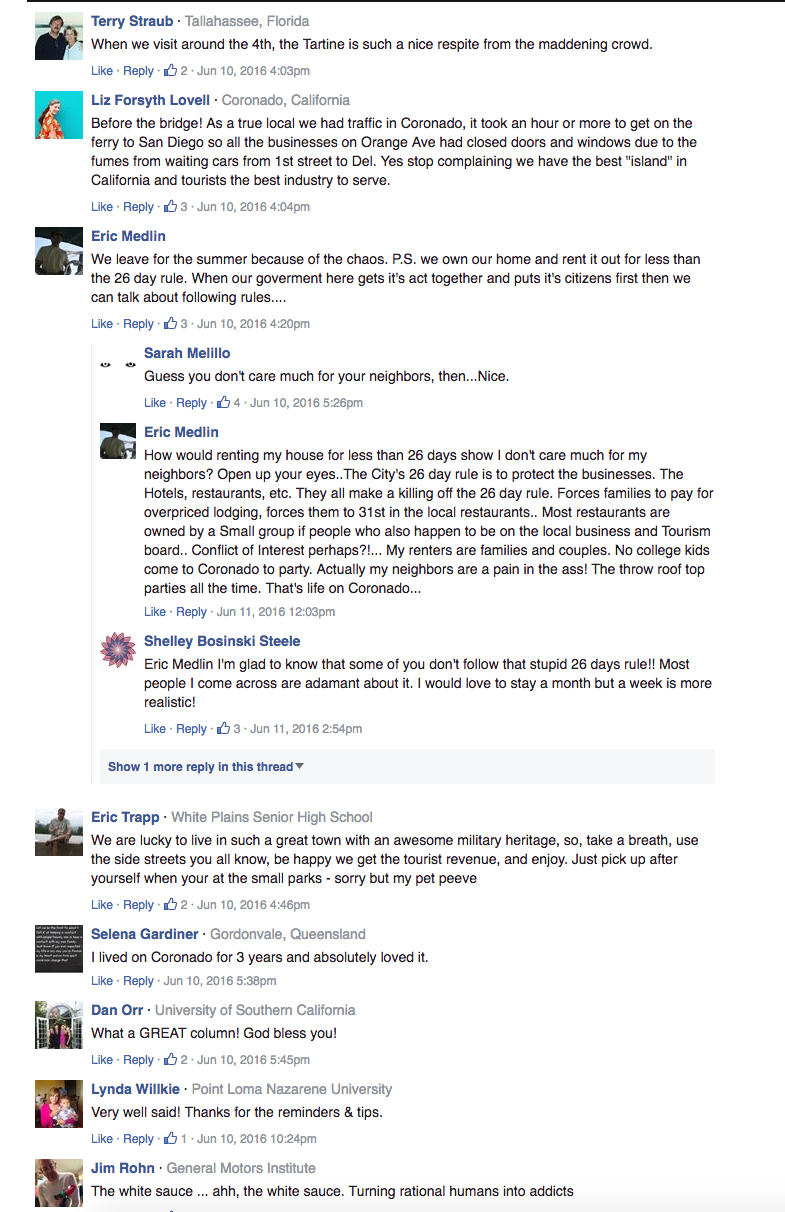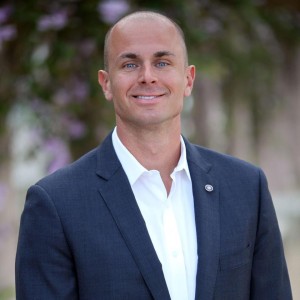“Residents First” is a phrase many Coronado locals have used to emphasize their desire for city council to take meaningful steps to protect, support, and show respect for Coronado residents. Many ‘Islanders’ feel council members aren’t spending the taxpayers’ money in favorable ways.
Tim Rohan, Coronado resident, voiced his concerns over the allocation of residents’ money and the CTID. In a local facebook post he wrote, “The Coronado Tourism Improvement District (CTID) loves to say it spends money that is not collected from you the taxpayer. That is true, but it is money that every resident in Coronado pays for.”
For those unfamiliar with the Coronado Tourism Improvement District (CTID), it is a non-profit organization that markets the many attributes of Coronado to increase the number of conventions and overnight guests in our hotels and impact the revenue of businesses that depend on tourism, especially in the off season.
“Hotel guests and conventioneers crowd our streets, businesses, beaches. They impact the services we pay for (trash, police, fire, lifeguards…). These ‘guests’ also use our infrastructure, which then needs to be replaced/upgraded at our expense,” says Rohan. “I for one would like to see a portion of that CTID tax set aside to be used specifically to offset some of the residents of Coronado’s ‘expenses’. Think ‘Residents First’.”
Rohan isn’t the only resident to express his dissatisfaction with ‘expenses’ that stem from tourists’ footprint on our city. At the beginning of the summer The Coronado Times re-shared an article called “A Local’s Guide to Surviving Summer in Coronado.” While the piece provided great insight on how to attempt to avoid the masses of tourists, it also urged readers to be more understanding of why people choose to vacation in Coronado. It’s not a secret — it’s beautiful, locals are (mostly) friendly, and gold-flecked sandy beaches have been highly ranked among the Best West Coast Beaches, Best California Beaches, and America’s Best Beaches, just to name a few.
But, within minutes of the article being shared again, residents, former locals, and recurring tourists vocalized their opinions on the subject of tourists infiltrating and leaving a mark the City of Coronado. Here are few of the comments that were left on our website:

“We leave for the summer because of the chaos. P.S. we own our home and rent it out for less than the 26 day rule. When our government here gets it’s act together and puts it’s citizens first then we can talk about following rules….”
“We are lucky to live in such a great town with an awesome military heritage, so, take a breath, use the side streets you all know, be happy we get the tourist revenue, and enjoy. Just pick up after yourself when your at the small parks – sorry but my pet peeve.”
“Very well said! Thanks for the reminders & tips.”
“I lived on Coronado for 3 years and absolutely loved it.”
So, in an effort to understand more about the CTID and ‘Resident’s First’ platform, we asked the 2016 Mayoral candidates their thoughts on the CTID and what it means for our city’s future.

Coronado Mayoral candidate and current City Councilman, Richard Bailey is known for listening to Coronado residents’ concerns. “What I’m hearing from residents is that one of their main concerns is they understand we are a beach community, they understand that there are going to be a lot of tourists that flock to our town and enjoy our weather and enjoy our beaches, but what concerns them is that the city has effectively sanctioned advertising to local day-trippers through the CTID and that’s something that they are not fond of,” said Bailey.

“When we first adopted the CTID and then, again, when we adopted CTID 2, as it’s known, it was partly because the hotels were losing what we call ‘heads in beds,’” said Councilwoman Carrie Downey. “In the downturn of the economy that was bad for them because, whether we like it as a community, how the businesses and the hotels go, it ripples down to everything in our city. It’s how our local businesses do, it’s how the restaurants do, and, let’s be honest, the percentage of TOT tax that the hotels turn over to the city, so it affects our budget, as well. It’s not the guiding point in why we do things, but we have to understand how it works with everybody.”
“It [CTID] was very successful, but we began to realize after the first CTID we didn’t necessarily want to keep pursuing what’s known as ‘day-trippers’. We didn’t think they were providing much to our businesses, which is what the CTID was adopted to do.”
According to Downey, the CTID Board realized the best way not to impact Coronado residents was to market to out of town conventions.
“Those are the type of visitors at the hotels that come, stay here in town, spend money at our restaurants, buy items in our stores, but don’t necessarily drive here and don’t take a lot of the use of facilities away from our Coronado residents. That has turned out to be true,” said the Councilwoman. “Our hotels are successful, our TOT revenues are up, but there is concern that CTID did advertise, in the last year, locally; not very much, 25 thousand dollars out of all of their budget, but they were very effective and many locals heard the TV and radio advertisements and worried that was bringing the day-trippers we didn’t want. Now, I think the council was correct to direct CTID to go back to marketing to the out of town conventions and, any marketing they do locally, which does help bring in some of those conventions, to do in a way that won’t impact Coronado residents.”
Bailey says he’s opposed to spending advertising resources on attracting day-trippers to Coronado. “I think we are doing our community a disservice when we are bringing people from across the bridge over to Coronado who simply bring their cars and leave their trash. Now, where the CTID can be effective and, where I think we have seen some progress over the last couple of years, is in the CTID’s efforts to really market towards business conventions. The types of tourists that fly in here and they take a charter bus to one of their hotels and they patronize our local businesses and they leave their cars at home. That’s a win win for the city because it doesn’t clog our streets, our local businesses benefit, and our city benefits, as well, through the tax dollars it generates that allows us to provide services for our residents,” said the Councilman.
Bailey concludes, “I’m a fan of attracting the right type of tourist, but, what’s more important to me is, making sure our residents enjoy a high quality of life and, I think the day-trippers at this time, kind of detract from that. I think we need to be supportive of measures that mitigate the impact of tourism, so, in the past, I’ve pushed to end advertising to the local day-trippers.”
What do you think of the CTID’s current plan? We’d love to hear your thoughts.




